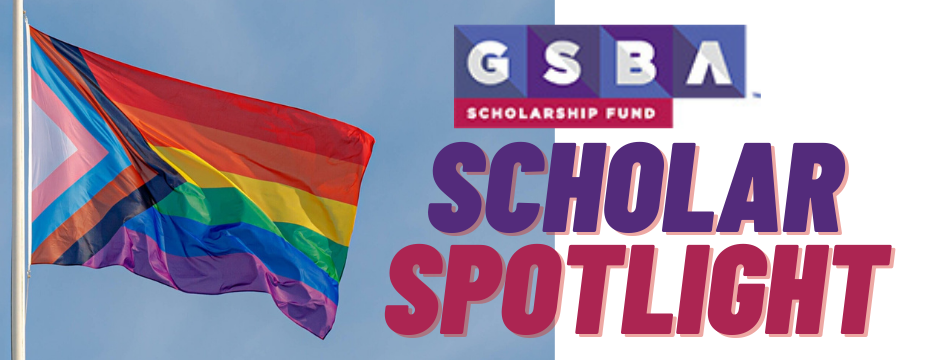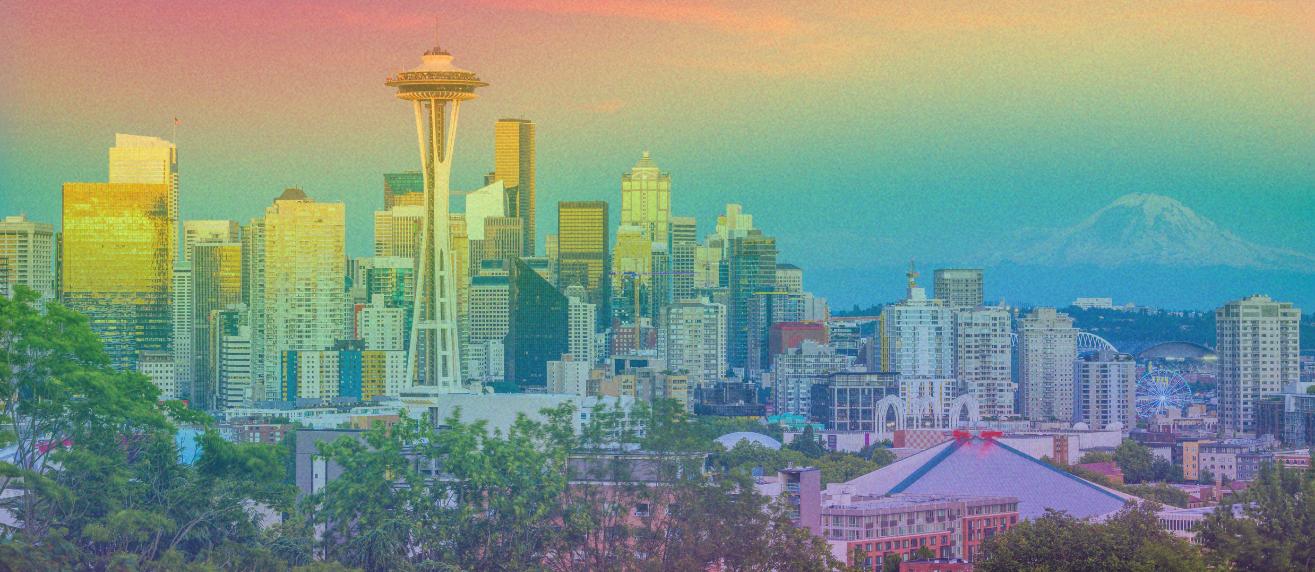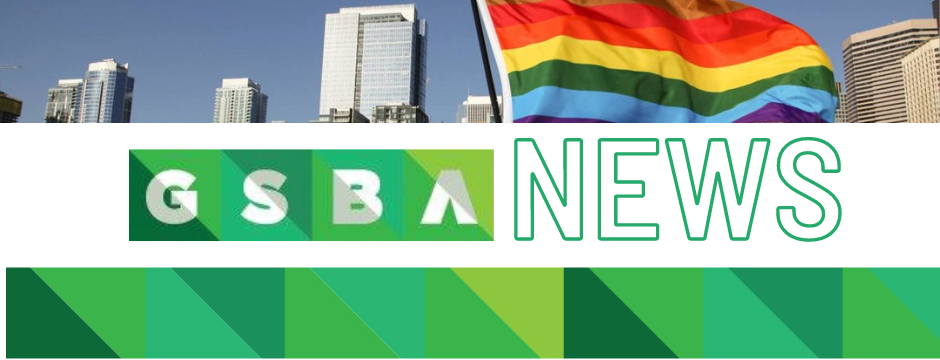Feb 02, 2022
In recognition of Black History Month, GSBA is working to amplify Black voices and histories by celebrating the undeniable impact Black LGBTQ+ activists have had on the LGBTQ+ civil rights movement, shed light on the specific intersection of Black and LGBTQ+ identities, and continue the crucial conversation about systemic racial injustice in Washington and around the globe. As a part of this work, several GSBA Scholars who identify as Black and LGBTQ+ have generously shared their stories, thoughts about intersectionality, what Black History means to them, and about what actions make for strong allyship.
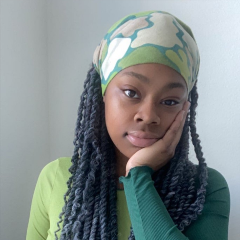 Three-Year GSBA Scholar Lashaunycee O’Cain (she/her) was raised in Seattle, WA and is currently pursuing her Bachelor of Fine Arts in Cinema with a focus in Screenwriting at Columbia College Hollywood. Here, she plans to enlighten masses and any listening audience to spiritual wisdom and the importance of individual vision as well as the coming of age process through sexuality, beliefs and morals.
Three-Year GSBA Scholar Lashaunycee O’Cain (she/her) was raised in Seattle, WA and is currently pursuing her Bachelor of Fine Arts in Cinema with a focus in Screenwriting at Columbia College Hollywood. Here, she plans to enlighten masses and any listening audience to spiritual wisdom and the importance of individual vision as well as the coming of age process through sexuality, beliefs and morals.
GSBA: Can share with us some thoughts about intersectionality and what this has looked like for you?
Lash: I’m in a constant process of learning to intersect every part of my being that I’ve had to separate in order to be/feel palatable to folks, and in that process I’ve rediscovered my silliness and how important it is to identify with my child-like qualities. I’ve always been a very serious young woman and along with that, a guarded one as well. In that reality where I “wasn’t Black enough” or to some acquaintances “too Black” and “too masculine” as a woman, I didn’t realize that I was labeling myself, and because it was easier to label me before others could, I wasn’t sure how to identify outside of the trauma that doing this caused.
Now, I feel very comfortable with being anything and everything all at once so that I can appreciate meeting new folks, and be grateful for even having simple conversations. Living in an era where everyone wants to be a part of something and therefore conforms to whatever is trending by the day, it gets hard to remember that genuine relationships [starting with ourselves] are more valuable than strangers who like that you made them laugh on their endless social media scroll.
GSBA: In what ways would you like to see people honoring Black lives, histories, and experiences throughout the year, and not just in February?
Lash: I would love to see others choose to bring awareness to our existence all the time and not only when our existence is being threatened. I’d ask that folks shadow us daily with their academic findings, their allyship, their business opportunities; offer the remembrance of our presence when we’re in the room not by asking for our input as folks of colors or as queer folk, but simply as people.
We have separate experiences as individuals and while being Black and queer often has a chain of events we all encounter at one point or another, wisdom comes from anyone. That wisdom often comes from a deeper place and sticks when it’s not always applied to the facets of our identity that the world oppresses us for. No Black queer person wants to spend their time explaining to folks that they’re Black and queer, trying to pluck heart strings. We want our presence to be treated just as naturally as any other occurrence rather than as a token for discussion.
GSBA: As a Black LGBTQ+ person, what does Pride embody for you? What does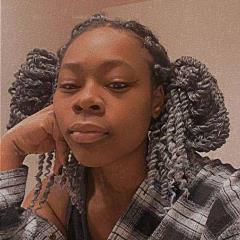 this look like in your daily life?
this look like in your daily life?
Lash: Lately, Pride has been embodied for me with my showing of skin. I’m not often dressed promiscuously or even just in tighter clothing but I’ve been releasing my shame by allowing my stretch marks to slip out of my crop top because I’m proud of my weight loss and the way it looks on my skin. I’m learning how not to hate the shades of my skin that darken more than the lighter shades. It’s a reality that as long as I’ve avoided it, this has kept me far away from understanding how I wish to express myself as a Black woman, how sexy I feel, and what pride means to me.
If I’m not one with my body, not much else will work for me and that’s been learnt by repeated experience. For a long while I was hyper aware of my weight and body shape; being a full-figured Black girl in middle and high school left me in limbo about how I wanted to express myself versus how I thought societal norms wanted to view me. It wasn’t until I resolved that no one lives in this body but me that I took responsibility for how I present myself. Whatever way I choose to be must make me happy and proud to be breathing at any given moment.
GSBA: Representation matters. Who are some of your Black and/or Black LGBTQ+ heroes and why?
Lash: Each day I feel I’m becoming more familiar with how other folks are accepting that the past can only offer us so much for the way we present ourselves now, and I’ve had to come to terms with realizing I’ve been my biggest hero for a while. Whenever I wanted to admit this, I felt arrogant rather than grateful, because I didn’t realize there aren’t many folks able to help themselves in order to help others.
Our world needs to be better filled with folks who are willing to learn to be self-sufficient emotionally and mentally rather than just economically; when becoming more aware of ourselves and our needs and expectations we find it easier to connect outside of ourselves, even if those connections may not come quickly.
Through those solid connections we make in spirit, we create an energy around our life forces that free us from this toxic independence that has festered in Black lineages. Independence is necessary, but never required. When we know who we are we know what we need and there’s nothing wrong with needing to be alone to realize we don’t have to be alone. We must advocate for the generations coming after us by making the most of our current moments. There’s all this pressure to be astute and in constant movement, but getting caught up in it leaves little time for us to develop our own mottos on life.
That said, I believe in Lena Waithe and Janelle Monae who have taken Hollywood by the ears with their unapologetic expressions of Black queerness and pure talent.
Community members can also take action by investing in regional organizations who work to address institutionalized racism, empower Black communities, and ensure that Black histories are never forgotten. Please consider investing and getting involved in regional Black-led organizations like POCAAN, Urban League of Metropolitan Seattle, Lavender Rights Project, Black Lives Matter Seattle – King County, NW African American Museum, NAACP Snohomish County, and NAACP Seattle King County.
You can also dine and shop intentionally by supporting the Black-owned small businesses in our community. Check out this guide by GSBA member Intentionalist of Black-owned businesses throughout the Puget Sound, including several GSBA members.
Additionally, you can diversify your intake of news and information by following GSBA member Converge Media, a Black-led news media organization that centers and amplifies stories of Black community in the Pacific Northwest and around the country.

